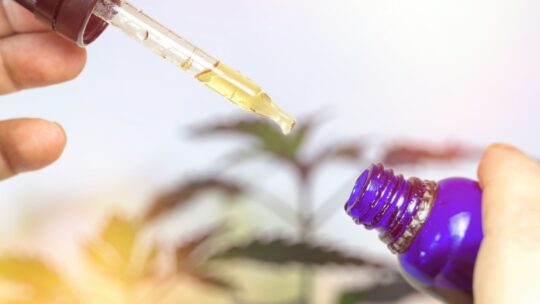Better known as CBD, Cannabidiol is one chemical compound out of hundreds found in the plant Cannabis Sativa. Unlike some of the other compounds found in this plant, CBD is not toxic, nor is it psychoactive, allowing us to adopt it safely into our natural lifestyles.

How to Use CBD
The extraction of CBD from cannabis plants normally comes in the form of either a powder or oil. It can be mixed into gels or creams and used topically, used effectively in CBD aromatherapy, and can be put into capsules or tinctures and taken orally.
Anti-Inflammatory Properties
A 2018 study on mice shows that inflammation is reduced through CBD by preventing the release of certain compounds that trigger inflammation in the body, so mounting evidence supports CBD providing new treatments for chronic pain.

Habits and Withdrawals
Researchers have noted that CBD has been found to reduce some of the symptoms commonly associated with substance use disorders. Numerous studies are backing up this evidence, like the pilot study that found smokers who used inhalers infused with CBD smoked fewer cigarettes and stopped craving nicotine.
Alzheimer’s Disease
Research has shown that CBD may help slow the onset and subsequent progress of Alzheimer’s disease. It might help people keep the ability to recognize familiar faces for longer too. There is more research underway to understand dosages and interactions here, but results are already promising.
Cancer
Extensive research has in recent years gone into CBD and its relationship with cancer treatment. There have been recent discussions to add it to chemotherapy drugs to help the body’s response to cancer treatment. Current research is going on to look at how CBD may help with treatment-related anxiety, the prevention of cancer cell growth, how it can diminish the side effects of chemotherapy, and improve the effectiveness of conventional chemo.
Anxiety
Current treatments for anxiety disorders often come with a slew of adverse side effects, but so far, no evidence confirms that CBD has any of these significant side effects. CBD has safely shown noticeable relief for sufferers of panic disorders, general anxiety disorders (GAD), PTSD, social anxiety disorders, and obsessive-compulsive disorders.
Natural Pain Relief
Research has linked the interaction of CBD with the ECS receptors in your immune system and brain with benefits in pain management and inflammation. This helps your body receive chemical signals that help the response of your cells from different stimuli, making pain more manageable.
Acne
CBD is seeing increased use as an additive to ointments and skin creams, thanks again to its anti-inflammatory properties. Acne is, in part, caused by the inflammation and overworking of sebaceous glands in the body. Queue CBD to once again provide a remedy.

Type 1 Diabetes
Type 1 diabetes can happen when the immune system fights cells in the pancreas, leading to inflammation. Due to evidence that CBD may help this inflammation and shield against or delay the beginning of type 1 diabetes, extensive research is currently being done in this field.
CBD has been studied extensively for its role in minimizing some of the symptoms of common health problems. For those living with cancer, it can make treatments, and life, far more manageable. Research is still ongoing, so new uses and treatments for this natural compound are sure to be discovered. It’s an exciting time for those looking for natural alternatives against some of life’s ailments.























